A wholly owned subsidiary of The Rowman & Littlefield Publishing Group, Inc.
All rights reserved . No part of this book may be reproduced in any form or by any electronic or mechanical means, including information storage and retrieval systems, without written permission from the publisher, except by a reviewer who may quote passages in a review.
The hardback edition of this book was previously cataloged by the Library of Congress as follows:
Naming Jhumpa Lahiri : canons and controversies / edited by Lavina Dhingra and Floyd Cheung.
p. cm.
1. Lahiri, JhumpaCriticism and interpretation. I. Dhingra, Lavina, 1965
II. Cheung, Floyd, 1969
ISBN: 978-0-7391-6997-1 (cloth : alk. paper)
ISBN: 978-0-7391-7587-3 (pbk. : alk. paper)
Preface and Acknowledgments
Jhumpa Lahiri is the first Indian immigrant to win the Pulitzer prize and become an overnight bestseller worldwide. Her meteoric success has incited controversies regarding the naming of her identity and the canons to which she belongs. Is she a Bengali, Indian, Asian American, American, or a postcolonial writer? Is she simply a writer? Does what we name her matter? The essays in this volume address these questions and shed light on why what we call authors or literary texts may matter.
The co-editors of this volume are thankful to all who have helped us develop answers to these questions. We believe in the dynamism of collaborative scholarship, especially when scholars from different fields of study including postcolonial, Asian American, American, womens studies, world literature, popular culture, psychoanalytic theory, and film criticism together create a collection generating multiple and divergent insights. We have aimed to produce such a work in Naming Jhumpa Lahiri: Canons and Controversies .
The seed of this anthology was sown in Floyds course on Asian American women writers at Smith College in Fall 2007. Lavina, a visiting scholar in the class, focused on Lahiris novel The Namesake . The intellectual dance of ideas between us and among the students, as well as the spirited debate that followed with faculty colleagues during Lavinas public lecture, created this books framework. For sponsoring that visit, we thank the Smith College Department of English, American Studies Program, Program for the Study of Women and Gender, the Lecture Committee, and the Five College Asian/Pacific/American Studies Program.
Those fruitful conversations led to our co-authored essay written during Floyds visits to Bates in Spring 2008 and Fall 2010. For funding those, we thank the Bates College Learning Associates Program and the English Department. For their interest and engagement, we are appreciative of all our students at Smith College and Bates College. Other venues that have given us opportunities to refine our thinking include Bowdoin College and the Foxborough, Massachusetts public library. To all of you, we are thankful.
We have presented our work in progress and argued with scholars at conferences of the Association for Asian American Studies, the American Literature Association, and the Society for Multi-Ethnic Studies of Europe and the Americas. We thank all who have deliberated with us regarding Jhumpa Lahiris writings, but especially those whose original work is included in this volume. Our contributors are meticulous scholars who have responded to one anothers drafts, working together in collaborative tension.
We have benefited from the generosity of the Smith College Dean for Academic Development, the Bates College Faculty Development Grant, research assistance from Jacquelyn Lam, funded by the Smith College STRIDE Program, editorial work by Susan Pelletier, and our efficient, enthusiastic publishers at Lexington Books, especially Sabah Ghulamali, Emily Natsios, Justin Race, Michael Sisskin, and Eric Wrona. We thank Christopher S. Harris for designing the books cover with Lavinas painting.
And of course, great appreciation goes to Jhumpa Lahiri, whose works give such pleasure and inspire so much thought. Quotations from The Interpreter of Maladies and The Namesake are used by permission of Houghton Mifflin Harcourt Publishing Company; quotations from Unaccustomed Earth are used by permission of Alfred A. Knopf, a division of Random House, Inc.
From Lavina:
I would like to express my personal appreciation for the gentle souls who have taught me how to laugh, love, and live joyfully: Guruji, Muse, Prema, and Johnsson. Thank you for recognizing and reclaiming me in this lifetime! Gratitude goes to my parents Savita and Khem for your love, sacrifices, and generosity, and for allowing me access to the whole world despite your own difficult childhoods during the Partition. Thanks to special family members for your help and guidance through different stages of life: Lynn Lidz, Shavina and Aadya Prakash, Vineet Dhingra Sangeeta Gauba, and my late grandparents Amrit Devi and K. D. Dhingra, Kaushalya and L. D. Batra.
Much gratitude to my friends who have provided love, support, and encouragement through both sad and happy times, but especially: Meena Alexander, Pam and Dave Baker, Ruth Burgess, Patty P. Chu, Dave Collings, Karen Dubuc, Elizabeth Eames, Chuck Foster, Elaine Hansen, John Hunnewell, Maria McDonald, Judy Nyberg, Gary Okihiro, Rhonda and Brad Perkins, Jill Reich, Brenda Sauro, Rajini Srikanth, Carole Taylor, and Bonnie Zare. Finally, I am grateful to you, Chris Harris, for modeling how to consciously create for myself, and for your profound friendship and love that led to intense spiritual journeys.
I thank my students through the years at Bates, but especially Lauren Kawana, Linda Lam, Mari Wright, Mercedes Grandin, and Lexy Smith. Thank you, Floyd, for our effortless, perfectly compatible collaboration, and friendship.
Lavina Dhingra, Bates College
From Floyd:
Like so many of Lahiris first-generation characters, my parents, Chow and Mabel Cheung, left the land of their birth and transplanted their roots to the unaccustomed earth of the United States of America. For enduring losses I cannot fully know and yet creating a strong home, I offer my humble thanks and wholehearted respect. Many of Lahiris second-generation characters, like Gogol Ganguli, find themselves at the end their narratives without having started their own familiesalternatal families, as Ambreen Hai, contributor to this volume, puts it. I consider blessed every moment that I can spend with my wife, Sheri, and children, Claire and Ben. They have been only patient and supportive during the writing and editing of this book. Grazie . Finally, I am thankful for the many intellectual homes and families that I have had over the years, especially those formed by my colleagues at Smith College, the Five College Asian/Pacific/American Studies Program, and the Association for Asian American Studies, among them Lavina Dhingra, a generous mentor in my early days and now co-editor and co-author extraordinaire.

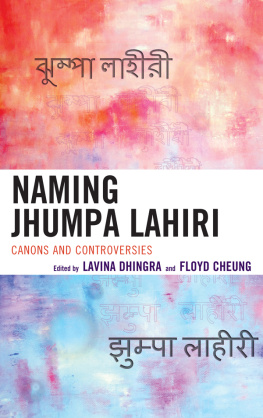


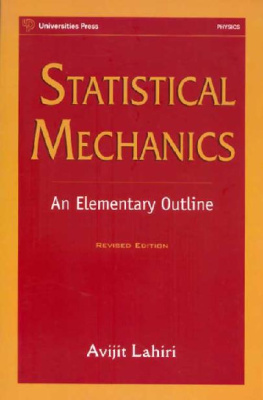
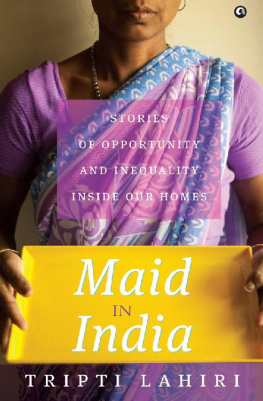
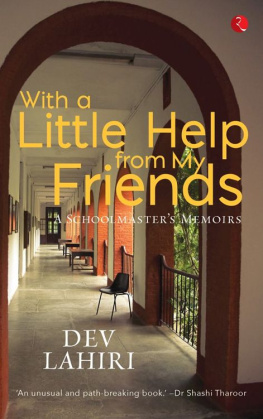
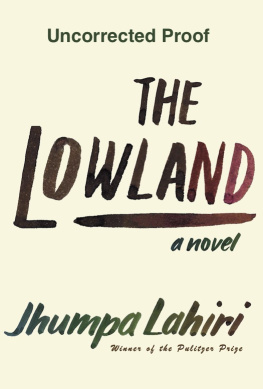
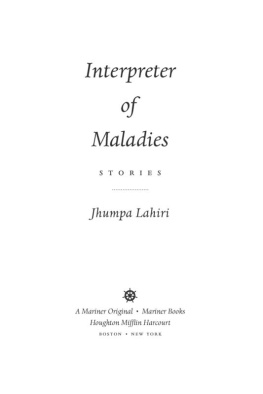


 The paper used in this publication meets the minimum requirements of American National Standard for Information SciencesPermanence of Paper for Printed Library Materials, ANSI/NISO Z39.48-1992.
The paper used in this publication meets the minimum requirements of American National Standard for Information SciencesPermanence of Paper for Printed Library Materials, ANSI/NISO Z39.48-1992.